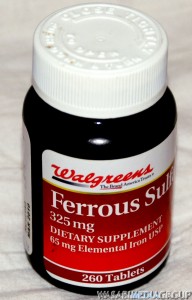 Note: Hemoglobin is the iron-containing part of our red blood cells that helps carry oxygen from our lungs to the rest of our body. The words iron and hemoglobin will be used interchangeably throughout this article because low hemoglobin levels are concomitant with low iron levels.
Note: Hemoglobin is the iron-containing part of our red blood cells that helps carry oxygen from our lungs to the rest of our body. The words iron and hemoglobin will be used interchangeably throughout this article because low hemoglobin levels are concomitant with low iron levels.
I have tried to donate blood twice in the past year but was denied both times because my hemoglobin level was below the allowed range. While my iron level was below the accepted amount, it was not necessarily a cause for concern. It is not uncommon for female donors to be turned away for this reason. Many women suffer from anemia, having significantly less than the normal amount of hemoglobin. Many doctors call this an iron deficiency.
The symptoms of anemia are feeling tired, difficulty in maintaining body temperature (e.g. having clammy hands), headaches, insomnia, decreased immune function (especially higher susceptibility for infection), loss of appetite, lack of stamina, and even reduced bone density (which leads to a higher risk for breaks). These symptoms are the result of a decreased oxygen supply, which also leads to decreased physical performance for many female athletes. This is especially true during a woman’s menstrual cycle, when the loss of blood also results in a loss of iron. Iron can be found in:
- cereals
- leafy greens (especially spinach)
- beans
- rice
- potatoes
- watermelon
- beef
- shrimp
Someone who takes in twice the amount of iron that he or she needs still could have low levels if he or she doesn’t have the other vitamins necessary in order for the body to make use of the iron. Even with iron supplements, only 8% of the iron taken in actually is used by the body due to the low amount actually absorbed. Iron intake should be paired with Vitamin C to improve absorption and Vitamin A to improve its transportation from storage sites.
If you have noticed a persistence of several of the aforementioned symptoms, it might be worth checking with your doctor to see if iron supplements would be right for you in order to increase your health and physical performance.





